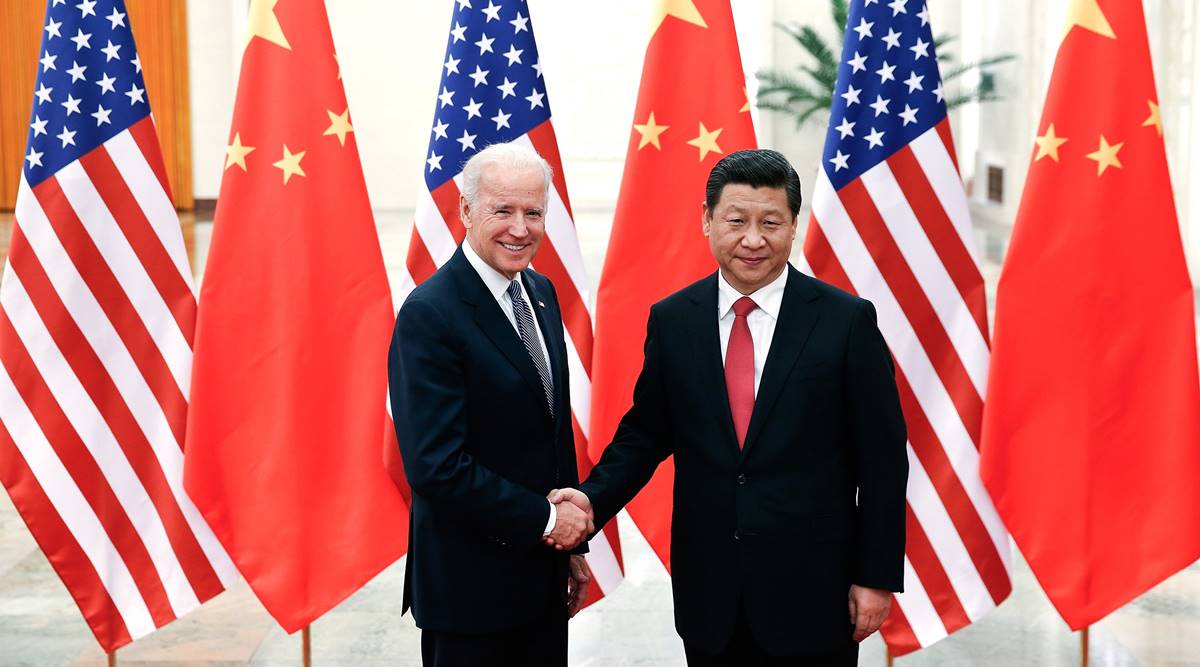
The Chinese People’s Liberation Army, the report said, recently provoked skirmishes along its disputed border with India, which killed dozens on both sides, and remains in a tense standoff with India’s military.
The State Department’s report comes under the leadership of Secretary of State Michael R Pompeo who has been critical of Beijing’s aggression in the last few months.
In New Delhi last month, Pompeo said that Indian and US leaders and citizens see with “increasing clarity” that the Communist Party of China (CCP) is “no friend to democracy and rule of law”, and that the US would “stand with the people of India to confront threats to their sovereignty and to their liberty”.
The detailed policy document by the State Department highlights that China is undermining the security, autonomy and economic interests of many nations in the region.
“China perceives rising India as a rival and seeks to impel it to accommodate Beijing’s ambitions by engaging economically while constraining New Delhi’s strategic partnership with the US, Japan, Australia and its relations with other democracies,” the report said.
“China is undermining the security, autonomy, and economic interests of many others in the region such as member states of the Association of Southeast Asian Nations (ASEAN), including those in the vital Mekong Region, as well as the nations of the Pacific Islands,” it said.
The 70-page report states that awareness has been growing in the US — and in nations around the world — that the ruling CCP has triggered a new era of great-power competition.
“Yet few discern the pattern in China’s inroads within every region of the world, much less the specific form of dominance to which the party aspires,” the report said.
The CCP aims not merely at pre-eminence within the established world order — an order that is grounded in free and sovereign nation-states, flows from the universal principles on which America was founded, and advances US national interests — but to fundamentally revise the world order, placing the People’s Republic of China (PRC) at the centre and serving Beijing’s authoritarian goals and hegemonic ambitions.
“In the face of the China challenge, the US must secure freedom,” said the report. China, it said, seeks to diminish US influence by fostering a sense in the region’s nations that China’s dominance is inevitable.
“Prime targets include US treaty-based allies Japan, South Korea, Australia, Thailand, and the Philippines as well as emerging strategic partners such as India, Vietnam, Indonesia, and Taiwan,” it said.
The report also highlighted Beijing’s hard relations with Taiwan, which it claims as its territory.
“Beijing menaces democratic Taiwan, which it considers a renegade province, intending to reunify Taiwan with the Mainland by force if necessary. And the PLA Navy and Chinese Coast Guard increasingly challenge Japan’s administrative control of the Senkaku Islands,” it said.
“The Trump administration achieved a fundamental break with conventional wisdom. It concluded that the CCP’s resolute conduct and self-professed goals require the US and other countries to revise assumptions and develop a new strategic doctrine to address the primacy and magnitude of the China challenge,” it said.
The report also highlighted the outbreak of the contagious coronavirus from China’s Wuhan city. “The CCP’s recklessness in allowing the novel coronavirus born in Wuhan to develop into a global pandemic coupled with the concerted disinformation campaign that Beijing undertook to conceal China’s culpability should put doubts to rest. Yet many people lack a proper understanding of the character and scope of the China challenge,” it said.
No comments:
Post a Comment